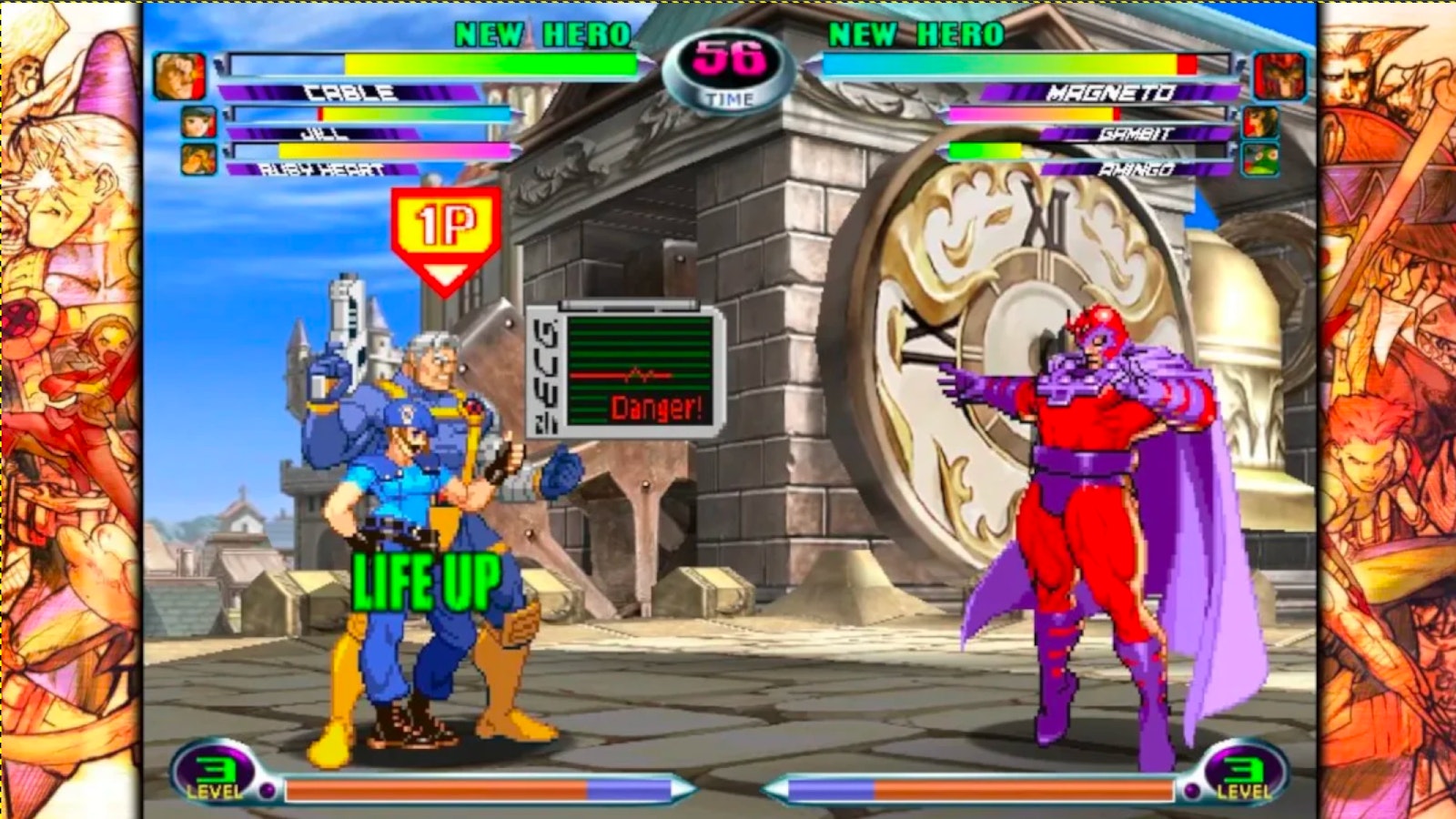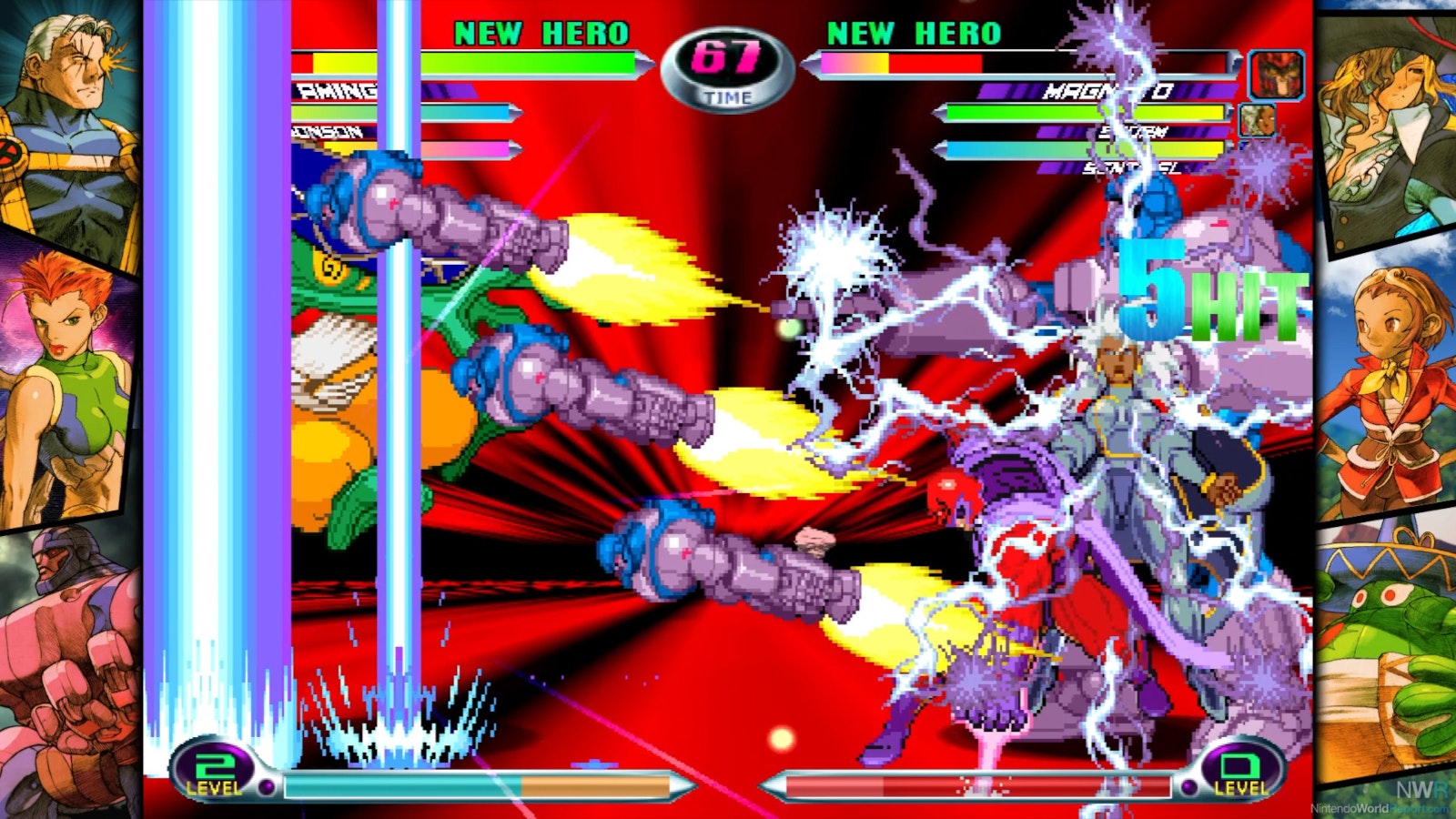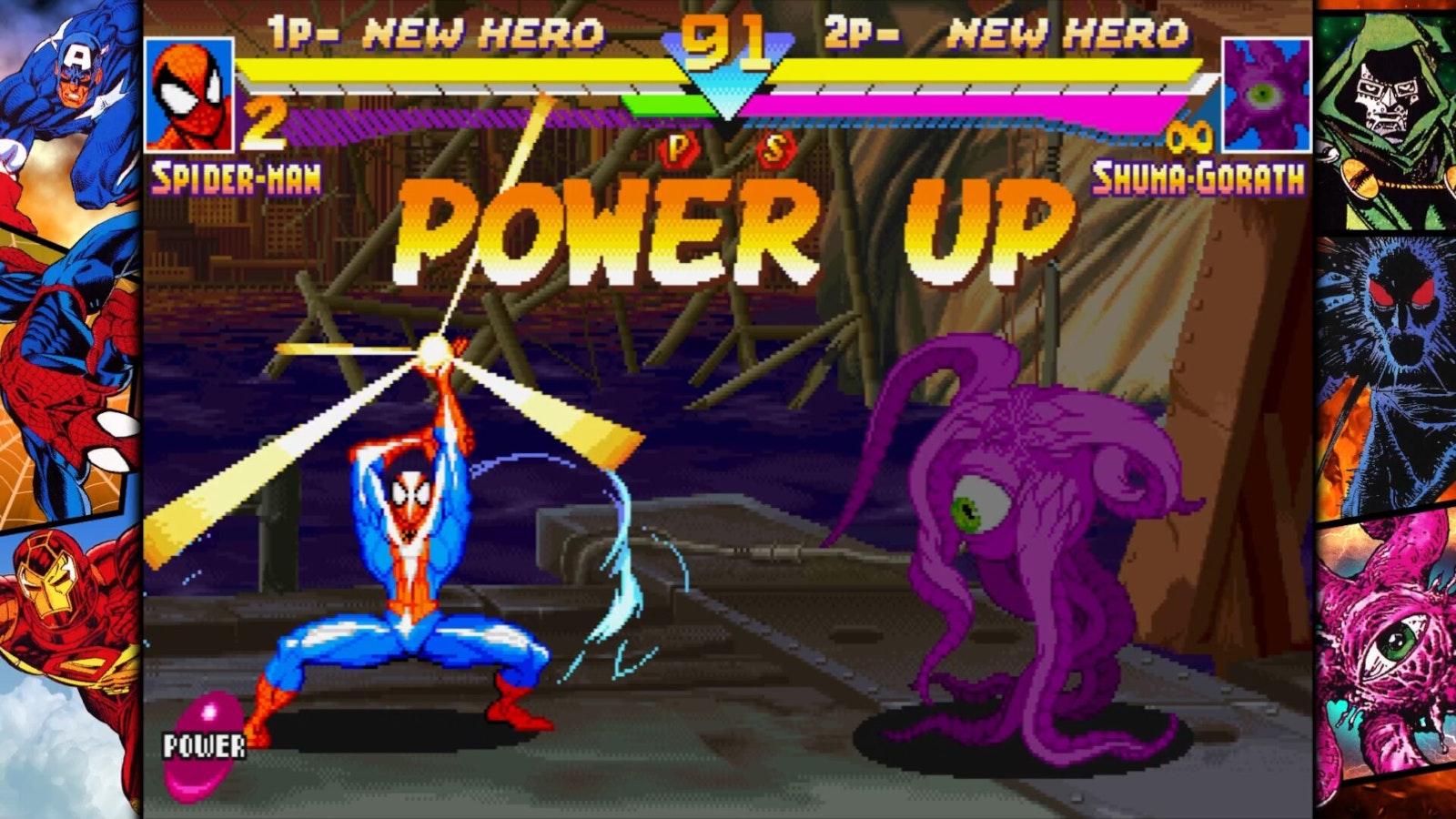Marvel vs. Capcom Fighting Collection: Arcade Classics
Platforms: PS4, Nintendo Switch, PC There are few companies out there with as...

Platforms: PS4, Nintendo Switch, PC
There are few companies out there with as much respect for their back catalogues as Capcom. Following several Mega Man compendiums and after previously reviving some of its more niche fighting games in 2022's Capcom Fighting Collection – which chiefly focused on the Darkstalkers series – the Japanese developer's latest trip to its archives results in a celebration of its legendary crossovers with Marvel Comics.

Marvel vs. Capcom Fighting Collection brings together not just fan favourites, but some stone-cold classics – and a rogue bonus game, to boot. The roster boasts beautifully accurate arcade editions of X-Men: Children of the Atom (1994), Marvel Super Heroes (1995), X-Men vs. Street Fighter (1996), Marvel Super Heroes vs. Street Fighter (1997), Marvel vs. Capcom: Clash of Super Heroes (1998), and Marvel vs. Capcom 2: New Age of Heroes (2000). While that last one is undoubtedly going to be the star of the show for many – its incredible 3v3 matches and gorgeously animated sprites mean it remains the highlight of the entire Marvel vs. Capcom series to date – the package as a whole represents some of the greatest 2D fighters of the 1990s.
The real hidden gem of the collection though is the inclusion of 1993's The Punisher, that rogue bonus game. A "lost" arcade scrolling beat-'em-up in the Final Fight mould, it's historically important as Capcom's first collaboration with Marvel – no Punisher, no Marvel vs. Capcom 2 – and springboards off the anti-hero's extreme popularity in the comic books at the time. Players can control Frank Castle himself or original flavour Nick Fury (not the Samuel L. Jackson model), or both in two-player co-op, taking on a host of Marvel villains from Kingpin to Bushwhacker.

Remarkably, it holds up incredibly well, balancing simple controls with a flexible moveset and plenty of enemy variety. It's about as narratively complex as any of its ilk, but does at least have a rough plot to draw players through the levels, along with some (probably unintentionally) funnier moments, such as Punisher swimming through sewer pipes, in full costume with flippers on, to reach an enemy base.
Capcom has done an excellent job of preserving the original presentation of the games, while also introducing numerous quality of life improvements.
The whole collection is a tour of not only fighting game history, but comic history too. There's a real delight in seeing which characters and stories were highlighted at the time of each game's release, long before the Marvel Cinematic Universe was even a twinkle in Kevin Feige's eye. From Marvel Super Heroes loosely adapting the original Infinity Gauntlet storyline, to MvC2 including some extremely fringe X-Men characters (such as Marrow and Spiral) in the line-up of playable fighters, each game is a brilliant snapshot of their era.
That love of history is seeded through the collection. Capcom has crammed in reams of art for each game, from concept drawings to arcade cabinet marquees with original control diagrams, along with music tracks for each title. All games are available in English and original Japanese versions too, which is not only a brilliant approach to game preservation, but a choice that has material differences in places. The best example is perhaps Marvel Super Heroes vs Street Fighter, where the Japanese version features an extra playable character, Norimaro, created by Japanese comedian Noritake Kinashi, but excised from the English language version due to rights issues. Being able to experience such regional differences, in many cases for the first time ever, is fantastic.

Similarly, Capcom has done an excellent job of preserving the original presentation of the games, while also introducing numerous quality of life improvements. Multiple video filters recreate the visual effects of old CRT screens, from scan lines to colour treatments, while aspect ratios can be adjusted to match your preferences, including a full widescreen stretched option. While that last one is mainly for philistines who can't abide pillarboxed video, the ability to create virtual save states on the fly is a welcome touch of modernity, allowing you to resume an arcade run mid-way through.
It's a great touch – or rather, it can be. Maddeningly, the quick save slot is shared across all seven games, rather than each one having its own slot. If you've quick saved halfway through Punisher but later want to save your progress through an arcade run of X-Men vs Street Fighter, you'll have to choose which one to keep. It's almost merciful that none of the games here will take an age to play through, or this would be a much bigger issue.
Controls are also going to be slightly contentious, especially to hardcore fighting game fans. While each game retains its full original control scheme – and all the nuances of Capcom's iterative combat systems over the years, with tricks such as Aerial Raves, Hyper Combos, various tag team assist systems, and similar minutiae to master – some map better to modern controllers like the PS5's DualSense than others. Still, there's an option for Street Fighter 6-style streamlined modern controls, or to customise each game's control scheme to your personal liking, so no-one should feel totally shut out from any of the games here.
The simple act of gathering these games together makes Marvel vs. Capcom Fighting Collection a real treat – some of the titles here haven't been officially available in literal decades – but the package is really elevated by the archival approach Capcom has taken. Everything is presented as authentically as possible, while still allowing for modern upgrades such as online play, and the bonus material is an attraction in its own right. A brilliant archive of fighting game treasures bolstered by a wealth of historical curiosities, this is one of Capcom's best collections yet.
What's Your Reaction?























